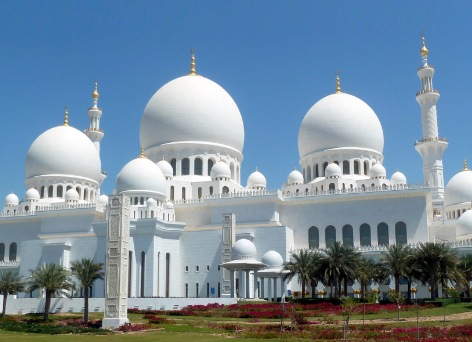Beauty has a profound impact on our lives and can influence our self-esteem, social interactions

Beauty is an abstract concept that has been celebrated and sought after by humans for centuries. It is something that is often associated with physical appearance, but it goes beyond that. Beauty can be found in a myriad of forms, from a Beauty sunset to a beautiful act of kindness. It is a quality that has the power to move us, inspire us, and make us feel alive.
In this article, we will explore the various aspects of beauty, including its definition, the science behind it, and how it is perceived in different cultures. We will also discuss the impact that beauty has on our lives and the role that it plays in our society.
Defining Beauty
Beauty is a subjective concept that is difficult to define. It can mean different things to different people and can be influenced by personal, cultural, and societal factors. In its most basic form, beauty can be described as a quality that pleases the senses, especially sight. However, this definition is limited and does not capture the complexity of the concept.
In the field of aesthetics, beauty is often associated with harmony, proportion, and balance. This definition suggests that beauty is not just about appearance, but also about the way things are arranged or put together. For example, a beautiful piece of music or a well-designed building can be just as aesthetically pleasing as a beautiful person.
The Science of Beauty
The pursuit of beauty is not just a cultural phenomenon, but also a biological one. Humans are wired to respond to beauty, and there is a scientific explanation for why we find certain things beautiful.
According to evolutionary psychologists,
beauty is a sign of good health and fertility. In ancient times, people were attracted to others who appeared healthy and able to reproduce. This is why certain physical features, such as symmetrical faces and clear skin, are often considered attractive.
In addition to physical appearance, our brains are also wired to respond to symmetry, color, and patterns. These visual cues help us to recognize objects and make sense of our environment. When we see something that is aesthetically pleasing, our brains release dopamine, a chemical that makes us feel good. This is why we often feel happy and uplifted when we see a beautiful sunset or a piece of artwork.
Perceptions of Beauty in Different Cultures
Beauty standards are not universal and vary from culture to culture. What is considered beautiful in one culture may not be considered beautiful in another. For example, in Western cultures, a tan is often seen as desirable and associated with health and beauty. In many Asian cultures, however, fair skin is prized, and women go to great lengths to avoid getting a tan.
In some African cultures, larger bodies are seen as beautiful and a sign of good health and prosperity. In Western cultures, however, thinness is often associated with beauty and desirability. These differences in beauty standards highlight the impact that culture and society can have on our perceptions of beauty.
The Impact of Beauty on Our Lives
Beauty has a profound impact on our lives and can influence our self-esteem, social interactions, and even our career prospects. Research has shown that people who are considered attractive are often treated better and are more likely to be successful in their careers. They are also more likely to be perceived as intelligent, competent, and trustworthy.
This bias towards beauty can have negative consequences for those who do not fit the traditional standards of beauty. People who are considered less attractive may experience discrimination, lower self-esteem, and poorer social and economic outcomes. This is especially true for women, who are often judged more harshly on their appearance than men.
However,
It is important to remember that beauty is not just about physical appearance. Inner beauty, such as



